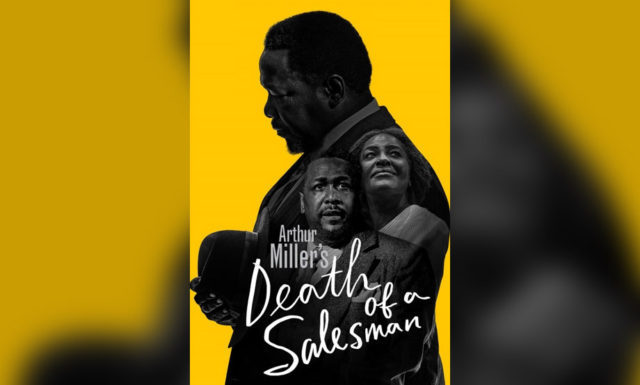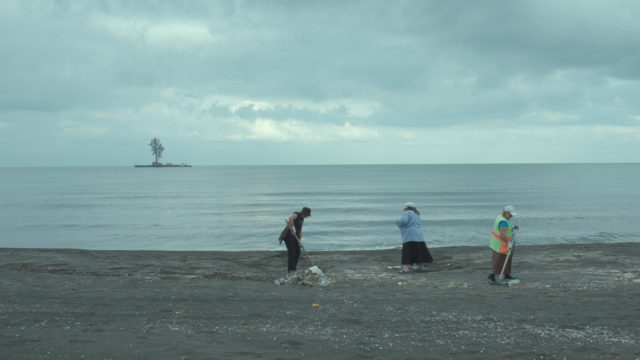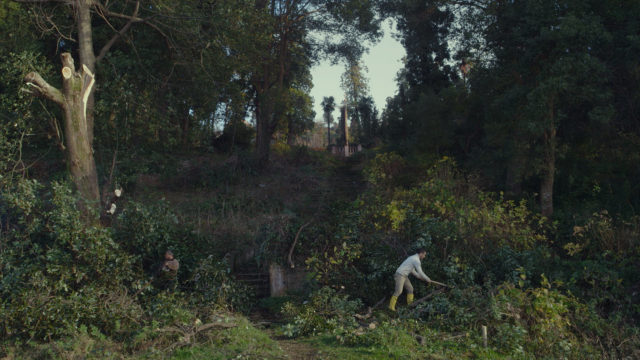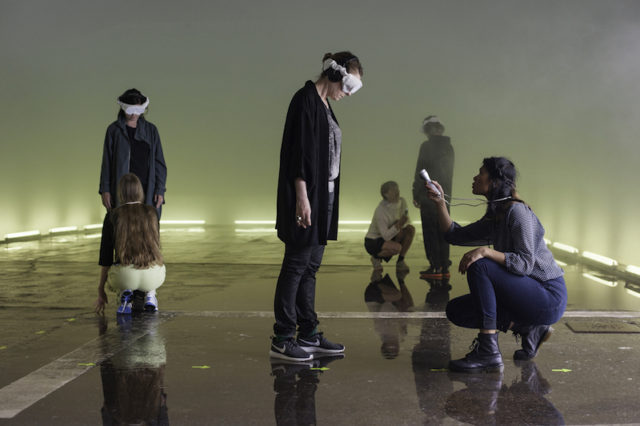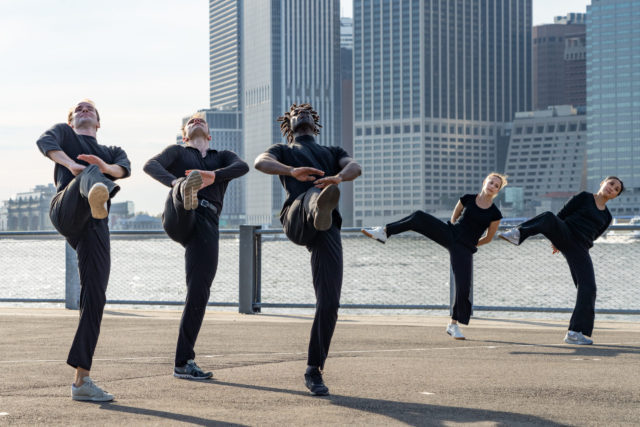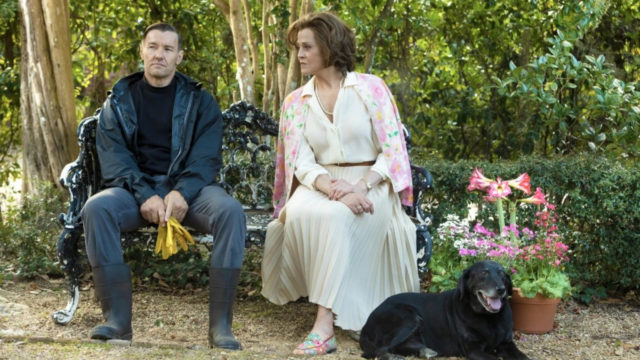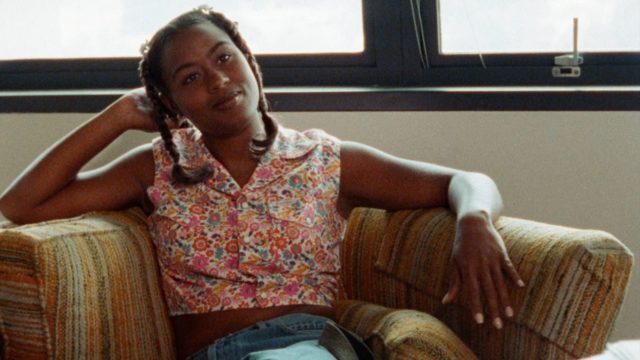
Yaya (Charlbi Dean) and Carl (Harris Dickinson) just want to keep enjoying the good life in Triangle of Sadness
TRIANGLE OF SADNESS (Ruben Östlund, 2022)
New York Film Festival, Film at Lincoln Center
Saturday, October 1, Alice Tully Hall, 9:00
Sunday, October 2, Alice Tully Hall, 2:15
Monday, October 3, Walter Reade Theater, 2:30
Monday, October 3, Museum of the Moving Image, 6:00
www.filmlinc.org
About halfway through Ruben Östlund’s brilliant Palme d’Or–winning satire Triangle of Sadness, I let out a sharp, loud laugh that made the people sitting around me wonder if I was okay. I was fine, and there were many more chuckles, snickers, giggles, guffaws, howls, and snorts to come, and not just from me.
In his previous films, Force Majeure and Palme d’Or winner The Square, the Swedish auteur has shown that he never lacks for subtlety as he skewers the lifestyles of the rich but not necessarily famous, mixing fear with farce, pushing both about as far as they can go without breaking.
In Triangle of Sadness, named for the small frown of worry wrinkles between a person’s eyebrows, Östlund channels Luis Buñuel’s The Discreet Charm of the Bourgeoisie and The Exterminating Angel, Monty Python’s The Meaning of Life (the “Autumn Years” segment with Mr. Creosote), and Lina Wertmüller’s romantic class comedy Swept Away . . . by an Unusual Destiny in the Blue Sea of August, resulting in an outrageously over-the-top condemnation of the privilege born of war and colonialism.
The protagonists are semi-successful male model Carl (Harris Dickinson) and female model and social media influencer Yaya (Charlbi Dean), two extremely beautiful people who are at the center of each of the three parts of the 149-minute film. In the first section, Carl auditions for a runway job and the couple argue over who is going to pick up the check after a fancy dinner. In the second chapter, they mostly enjoy their free luxury cruise aboard a yacht even when all hell breaks loose. And in the finale, they have to figure out how far they will go just to stay alive.
Along the way, they meet a fantastic mélange of characters, including vacuous fashion reporter Lewis (Thobias Thorwid), gluttonous Russian capitalist Dimitry (Zlatko Burić), toilet cleaner Abigail (Dolly de Leon), chief ship steward Paula (Vicki Berlin), ridiculously rich single man Jorma Björkman (Henrik Dorsin), ridiculously rich single woman Vera (Sunnyi Melles), ridiculously rich and demure British couple Clementine (Amanda Walker) and Winston (Oliver Ford Davies), the mysterious Nelson (Jean-Christophe Folly), and alcoholic yacht captain Thomas Smith (Woody Harrelson).
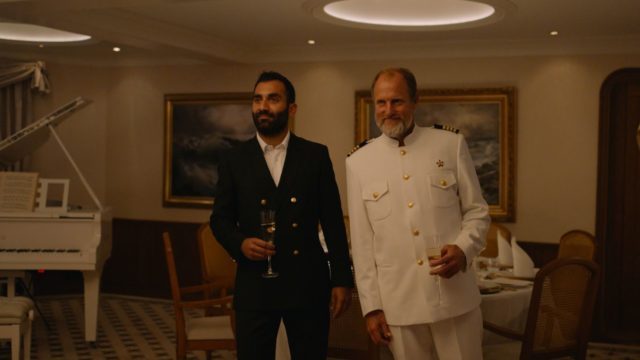
Darius (Arvin Kananian) and Captain Smith (Woody Harrelson) try to keep their balance in Palme d’Or winner
Dickinson (See How They Run, Where the Crawdads Sing) and Dean (Spud, Black Lightning) are magnetic together as flawed glitterati who exist in their own reality, until they don’t. (A star in the making, South African actress and model Dean died tragically this past August at the age of thirty-two.) Burić and Harrelson are a riot as their friendship blossoms amid booze and debates over Karl Marx, capitalism, and socialism. As a bonus, the yacht in the film is the Christina O, which was formerly owned by Aristotle Onassis and Jackie Kennedy. The rest of the large cast plays the dark humor with exquisitely calm, mannered demeanors.
Östlund, who has also written and directed Gitarrmongot, Involuntary, and Play, holds nothing back in Triangle of Sadness; the film could use a bit of trimming here and there, but that’s not his style. He puts it all out there, full steam ahead, damn the torpedoes. (The French title is Sans filtre, or “Without Filter.”) Both Force Majeure and The Square left indelible images in my head, and the same is true with his latest film, which still has me breaking out into laughter when I recall several key moments, such as Dimitry boasting, “I sell shit”; ship steward Alicia (Alicia Eriksson) trying not to say no to a demanding passenger; Captain Smith leaning sideways right before the captain’s dinner, next to his stable second in command, Darius (Arvin Kananian); and Abigail asking fellow survivors who’s in charge. It’s all so much unrelenting madness even as it hits you over the head with its political philosophy.
Triangle of Sadness screens October 1-3 at the New York Film Festival, with Östlund, de Leon, and Burić participating in Q&As following the shows on the first two days at Alice Tully Hall. The film opens in theaters October 7.
